Kellogg MBA Students Choose Best 2019 Super Bowl Ads
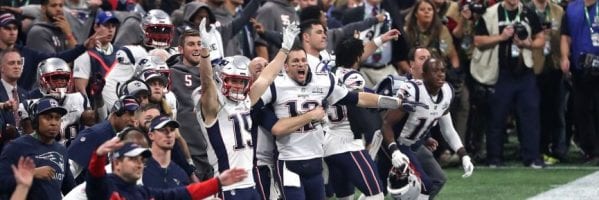
Aside from Tom Brady, Aaron Donald, and a shirtless Adam Levine, there’s no doubt that the Super Bowl commercials were the star of the night last Sunday.
The game, certainly, wasn’t the most thrilling. So the question is, what was the best ad of the 2019 Super Bowl? To get to the bottom of the question, a panel of Northwestern Kellogg MBA students got together to discuss each commercial. In the end, they looked for the ads that were the most and least effective at driving business and building their brands.
How Super Bowl Commercials Evaluation Works
First, before we dive into the best and worst ads, it’s important to know how the Kellogg MBAs made their evaluation. Working alongside two of the school’s most widely respected marketing professors—Time Calkins and Derek Rucker—the MBA panel applied the strategic ADPLAN framework.
A—Attention: Did the commercial engage the audience?
D—Distinction: Was the execution unique in delivery?
P—Positioning: Did the commercial represent the appropriate category and feature a strong benefit?
L—Linkage: Will the benefit and brand be remembered?
A—Amplification: Were viewers’ thoughts favorable?
N—Net Equity: Was the commercial consistent with the brand’s reputation and history?
From here, the MBA students came up with the final 2019 rankings.
Microsoft Super Bowl Commercial Wins
For the most effective ad, Microsoft took home the top prize. Their commercial spot was not only charming, but it stood out for its emotional tone and lack of clutter. The ad demonstrated Microsoft’s new adaptive controller and how it helps disabled kids play video games and form friendships. A clear benefit was apparent, showing how Microsoft technology makes the world a better place.
Amazon, Expensify, and Other Standouts
Other stand out advertisers for the Super Bowl included Amazon, Expensify, Washington Post, Pepsi, Bumble, and Google.
Bizarre Andy Warhol Burger King Commercial Flops
As for the least effective Super Bowl commercial, that honor went to Burger King. Their strange ad featured 1982 footage of Andy Warhol eating a Whopper, but it just came across as dull and uninteresting. Other advertising failures included the confusing Avocados From Mexico ad, Sprint’s flying horse disaster, the Turkish Airlines dark and scary spot, Mint Mobile’s unappealing chunky milk, and Simplesafe’s unbalanced ad. As for why each of these commercials failed, it always came back to a confusing message that didn’t deliver a clear benefit.
This article has been republished and edited from its original source, Clear Admit.
Sadness Olympics: New TruTV Game Show Aims to Help Student Debt

Earlier this week, television network TruTV debuted a curious new game show to its Tuesday lineup, with ‘Paid Off.” The conceit is simple, and, very apropos for 2018: three contestants will answer a series of trivia questions with the ultimate payoff of removing their student loan debt.
Like ‘Jeopardy!’, without the mystery of where the prize-money may be going, ‘Paid Off’ will focus solely on the mammoth and ever-increasing student loan debt hovering over the U.S., which is set to topple $1.5 trillion very soon, according to Student Loan Hero.
A recent survey from LendEDU found that the average American has $27,975 in student loans yet to be paid off, in addition to $5,472 of credit card debt. Among millennial Americans, however, the average credit card debt is even higher at $6,206. And while the majority of 23-38-year old’s do not have student loan debt, those who due are carrying a heavy financial burden, which can be found in the chart below:
In a recent interview with the Washington Post, host Michael Torpey (who’s face might be familiar to fans of the Netflix series Orange is the New Black) notes, “One of the mantras is ‘an absurd show to match an absurd crisis.’ A game show feels really apt because this is the state of things right now.” The student debt game show will air 16 episodes during its initial summer run.
The show’s creators aren’t trying to offer a whole-cloth solution to the student debt crisis, obviously. Rather, the theme is to help out a few with a new, novel concept. Although the unintended message may be troubling to some: seeing that the best solutions to massive debt isn’t provided to the them by the state, or the market; instead, the best bet is more of a lottery, parading the few victors in the swelling whirlpool. A Gladiator of sorts for the 21st century, with the violence turned way down but the positive desperation on full-screen.
Or, you can make an Instagram for your pet if the novel route is more attractive to you.
What Is Your 2018 MBA Resolution?

For those who aren’t in a post-New Years Eve hibernation, 2018 is here, and that means actually following through on all those promises you hastily made an hour before the year officially began—including your 2018 MBA resolution.
You and every other person in a five mile radius will pack your preferred gym for the next few weeks, dutifully following through on the promises they made themselves. And while the frustration of waiting, waiting, and still waiting for the bench press to open up is inevitably going to sit in, you still have an opportunity to utilize that newfound resolution energy into your MBA degree.
Start of this new year by forming productive habits, achievable goals, and a vision of where you want to end up! #MondayMotivation pic.twitter.com/igYQmNtI3C
— FOX MBA & MS (@FoxMBA) January 2, 2018
But, where do you start?
2018 MBA Resolution Baby Steps
Ordering a multi-thousand dollar exercise bike at the stroke of midnight might have been a more curious impulse, but there are plenty of non-expensive efforts you can make going into a brand new year.
The MIT Sloan School of Management revealed some of its favorite books from the previous year from its distinguished faculty and alumni, including the timely “The Power of Little Ideas: A Low Risk, High Reward Approach to Innovation,” by senior lecturer David Robertson. Which, in itself, can provide a powerful set of ideas to harness that newfound resolution energy.
Looking to up your tech-savvy skillset? Head over to Product Hunt, which provides an impossibly lengthy list of new apps and tools from startup companies that can do almost everything: from learning valuable developer tools to reforming your daily task routine.
Be Wary of Impossible Goals
According to Chicago Booth behavioral science experts, people don’t tend to follow through on grander resolutions.
“‘The problem with big resolutions is that motivation tends to wane over time,’ says Chicago Booth’s Ayelet Fishbach, who studies motivation and decision making. People start out strong, but then reality sets in as they realize it’s easier to set goals than to carry them out. ‘The problem with persisting is that our priorities change in the course of a day, a week, a year,’ says Fishbach. We may wake up in the morning determined to watch what we eat, but by the afternoon, we’re distracted—and start snacking again. Or we may feel determined to invest more time in relationships, but that slips our mind when an important work deadline looms. ‘Successful goal pursuit,’ she says, ‘requires employing strategies that keep us on track as our priorities momentarily shift away.'”
An important part of Fishbach’s research revealed that setting more frequently occurring goals is important to stay on track. This means, “Instead of an annual goal, set a monthly goal. Instead of weekly, make it daily.” When more smaller, reasonable projects are completed, the end goal is more probable. And the more probable a goal is, the greater the motivation, according to Booth marketing professor Oleg Urminsky.
“Proximity to the goal increases motivation. If you’re a rat in a maze, you run faster the closer you get to the end.”
Embrace The Eventual Setback
Anyone who has gone through a diet is more than likely familiar with the concept of a cheat day. While scouring cake one week into your shiny new diet may feel like a small failure, it doesn’t mean it’s time to give up.
According to marketing researchers Marissa A. Sharif and Suzanne B. Shu, authors of the 2017 study “The Benefits of Emergency Reserves: Greater Preference and Persistence for Goals That Have Slack with a Cost” in the Journal of Marketing Research, having a few “mulligan” occurrences is normal and should not deter your overall aim.
“What this suggests is that the perfect goal to set for yourself is probably a tough one but with the explicit allowance for a mulligan or two so you won’t be discouraged by the occasional slip up,” writes Washington Post reporter Katherine L. Milkman.
It’s Time To Go After That MBA
We at MetroMBA may be vocal advocates of an MBA, but numbers speak for themselves. MBA salaries at the top schools in the world hit a record high last year, according to the Financial Times, sitting at an eye-popping $142,000 USD average by the start of 2017—a $7,000 jump from the previous year.
Some of the world’s biggest companies, such as Amazon, are on MBA “hiring sprees” as it rapidly expands its business, indicating the increasingly high demand for graduates.
And if all else fails, just embrace it!
I don’t like New Year’s Resolutions. At all. In fact, I vow to get fatter, more deceitful, spend more frivolously, and enter more toxic relationships. These are my New Year’s Regressions.
— ShinigamE (@WWEBigE) January 1, 2018
The Life and Career of Edwin G. Booz and James L. Allen – Booz Allen Hamilton
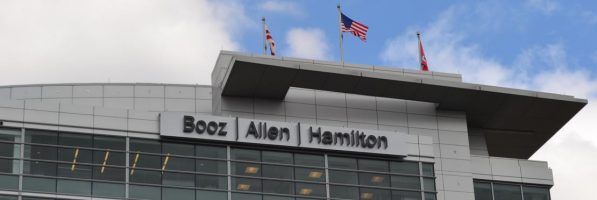
Booz Allen Hamilton is one of the world’s largest and most recognizable management consulting firms. Headquartered in McLean, Virginia in the Washington DC metro, the firm boasts 24,225 employees working in more than 80 offices around the globe.
The firm has gone through several name changes in its 100 years of existence, including: Edwin G. Booz, Business Engineering Service; Edwin G. Booz Surveys; Edwin G. Booz and Fry Surveys; Booz, Fry, Allen & Hamilton; Booz, Allen & Hamilton; and finally Booz Allen Hamilton. Today, we’ll focus on two of those names, and the men behind them: Edwin G. Booz and James L. Allen, both Northwestern University Kellogg School of Management graduates.
Early Upbringing and Education
Born in Reading, PA in 1887, Edwin George Booz obtained his Bachelor’s degree in economics in 1912 and his Master’s degree in psychology in 1914 from the Kellogg School of Management. After earning his Master’s, Booz founded Booz Allen Hamilton in 1914 in Chicago, originally under the name The Business Research Service.
However, he was drafted into the Army as a private due to World War I in September 1917, and rose to the rank of major. He worked with the War Department in Washington DC to reorganize the business methods of its various bureaus.
Booz left the Army in March 1919 and returned to his business, servicing bankers, manufacturers, advertising agencies, wholesalers, sales managers, publishers, real estate operators, and other enterprises. He would go on to lead the firm as its chairman until 1946, and continued to work part-time for clients and to mentor the next generation of leaders until his death in 1951.
Meanwhile, James L. Allen was born November 21, 1904, in Somerset, Kentucky. He was raised on a farm, educated in public schools, and graduated from Somerset High School in 1921. In 1922, he left the small town for Chicago where he worked at several jobs and attended night school. Allen graduated in 1929 with a B.S. degree in Economics from the Kellogg School of Management.
After graduating, Allen joined Booz’s firm, Edwin G. Booz Surveys, in 1929. He was named a partner in 1936, and focused on developing business strategy, personnel, and organization studies. In the early ’40s, Allen and Booz worked for the U.S. Military leading up to World War II.
Allen was named chairman of Booz Allen Hamilton in 1946, and held that position until 1970. During this time, the firm enjoyed steady growth as it increased its number of partners, staff, and locations. He was named honorary chairman in 1970 and remained involved with Booz Allen Hamilton until his death in 1992.
CHECK THIS OUT: How Chicago Business Schools are Helping Low-Income Students
About the Company
Booz Allen first went public in 1970 with an initial offering of 500,000 shares at $24 per share. In 1976 public trading ceased after Booz Allen’s partners bought back stock in the largest-ever leveraged buyout involving a consulting firm. Years later, in 2007, managing director Marc Gerencser explained that being privately held allowed the firm to consider long-range investments that companies beholden to shareholders might not be able to make.
In June 2012, Booz Allen expanded its operations in North Africa and the Middle East, bringing offices to countries like Kuwait, Oman, Qatar, and the United Arab Emirates. Booz Allen specifically helped the Government of the United Arab Emirates a sort of National Security Agency for that country. The New York Times reported that the company “profits handsomely from its worldwide expansion.”
In 2014, Booz Allen Hamilton Holding Corporation was awarded a “Top 2014 Workplace” by the Washington Post.
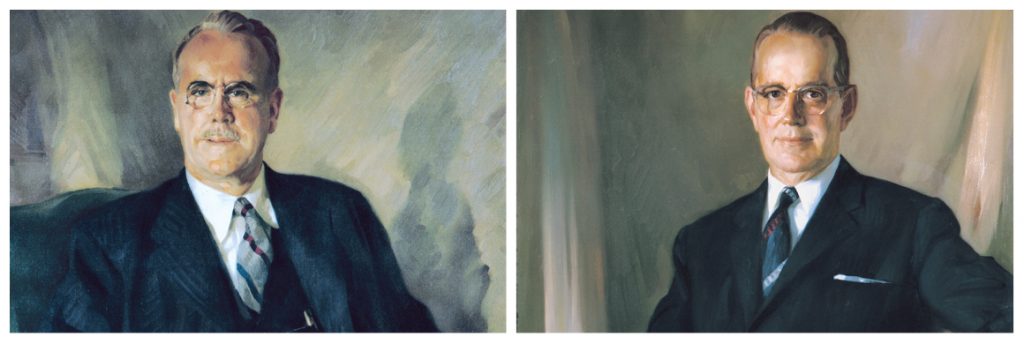
Legacy
Edwin Booz’s name is immortalized as the only name to remain with the firm from its humble beginnings through today. He believed that he could help companies prosper by bringing them “a human touch” and insisted that “people, not products” were the focus of work. This approach gave birth to the modern management consulting profession.
Meanwhile, Jim Allen’s legacy lives on at the Kellogg School of Business at the James L. Allen Center. According to Kellogg, the Center hosts more than 6000 executives each year for one or more of the school’s 160 executive education programs. Considered “an academic retreat,” the Allen Centers offers living and learning spaces to the Kellogg community. Technologically enabled classrooms and comfortable gathering and group study spaces facilitate peer learning and informal interactions among faculty and participants. Additional amenities include indoor workout areas and outdoor exercise programs along the Lake Michigan shoreline provide opportunities for the occasional (and necessary) break and breather.
Northeastern Professor Talks Obamacare’s Precarious Future
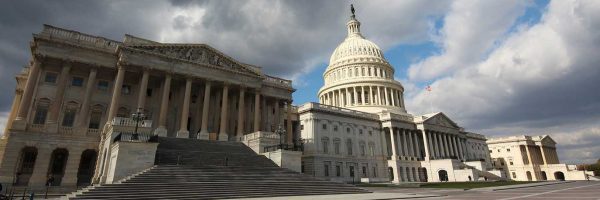
D’Amore-McKim Professor Timothy Hoff, a health policy and healthcare systems expert, recently discussed the precarious situation of the Affordable Care Act (ACA) within the current healthcare landscape.
D’Amore-McKim Professors Discuss WannaCry RansomeWare Attack
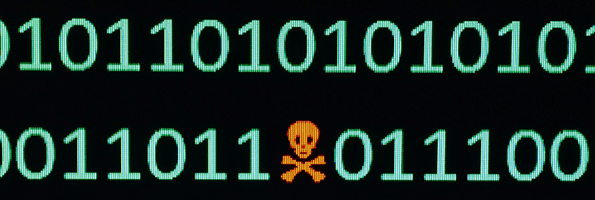
Four faculty members from D’Amore-McKim School of Business at Northeastern University recently weighed in the recent “WannaCry” ransomware attack.
